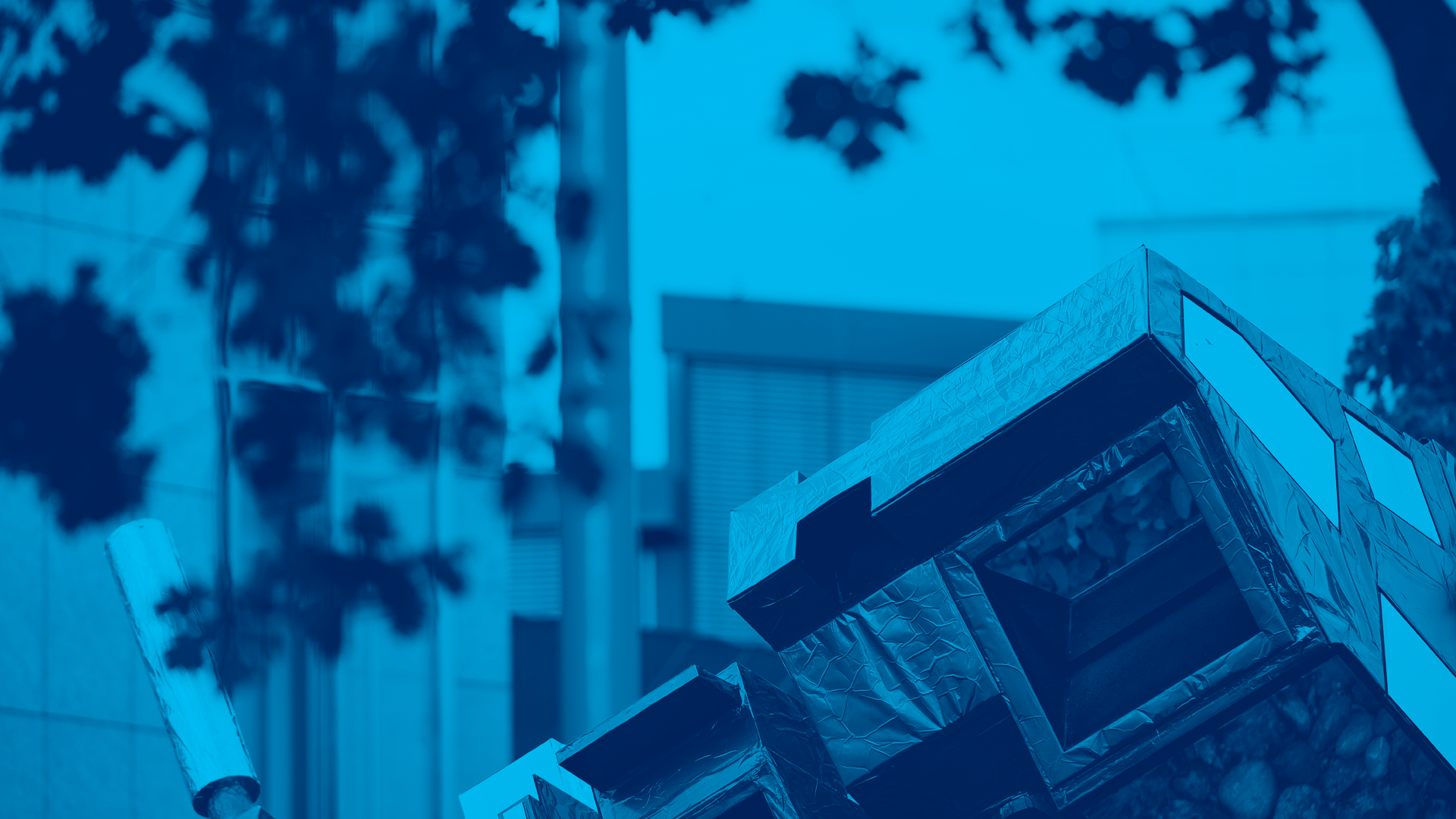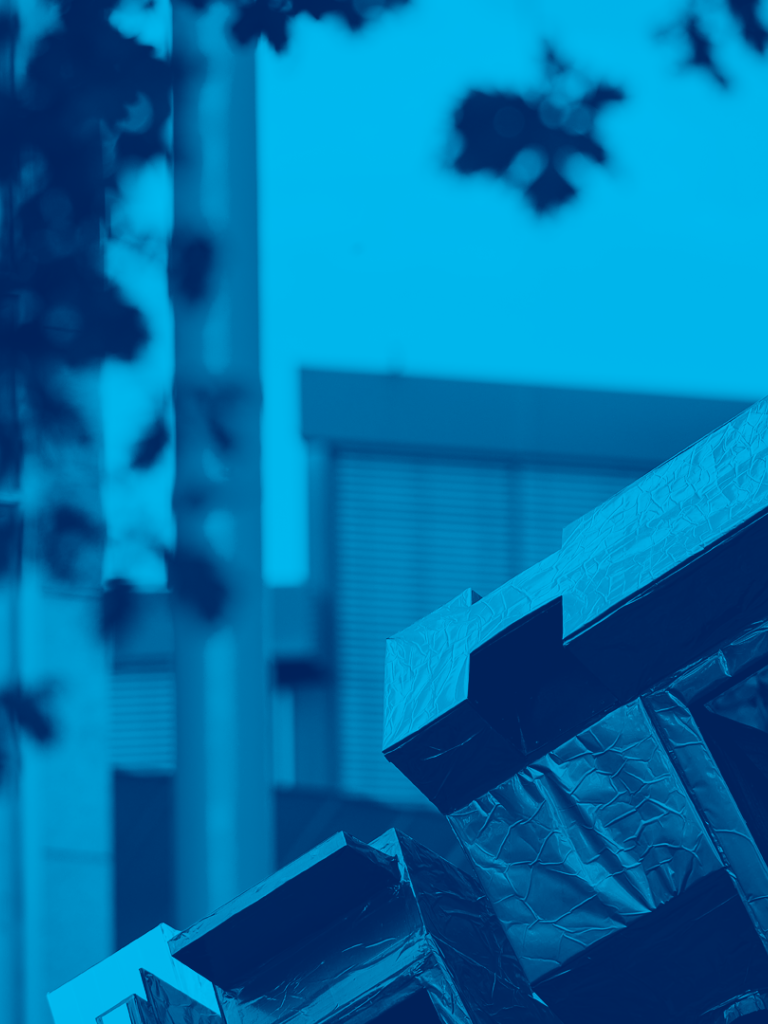
Inside EUMETSAT: meet Elayne and Giuseppe
Inside EUMETSAT interviews Elayne Chapman and Giuseppe Longhitano


Inside EUMETSAT returns this month with another in-depth interview featuring two more of our outstanding EUMETSAT colleagues: Elayne Chapman and Giuseppe Longhitano! They both started at EUMETSAT during the summer season, but while Elayne arrived in August of 2001, Giuseppe joined the team more recently in August of 2020.
20 June 2023
04 August 2021
Inside EUMETSAT is a series of articles for the EUMETSAT Science Blog that will be published over the next weeks and months. Each month, we’ll introduce you to two valued members of our team: one newcomer, who joined in the past year, and one senior staff member who has spent years at the organisation.
In a time that’s far from ordinary, we hope to use this opportunity to introduce our readers to some of the diverse and friendly faces they might encounter in the course of a normal day at EUMETSAT. It’s our goal to appreciate and celebrate all the different and talented people who work here. We hope these articles will help you discover—or rediscover—EUMETSAT.
Meet Elayne and Giuseppe!


What is your current role at EUMETSAT? What are your current duties?
Elayne Chapman: I am a Human Resources Business Partner and Learning & Development Manager. In this role, I support the Operations (OPS) department on HR matters, such as recruitment, training, skills assessment, planning etc. I have regular meetings with the OPS heads of divisions and with the head of the department, and I even attend the OPS management meetings so that I keep up to date with the business area and can support any HR matters from an early stage. As Learning & Development Manager, I ensure that the processes for identifying and meeting learning needs are run properly, and I manage the provision of a range of in-house training courses for staff.
Giuseppe Longhitano: I am a Ground Segment Engineer for future Copernicus Sentinel missions in the Copernicus Mission Development division (CMD). EUMETSAT is already involved in the development and operation of several Copernicus Sentinel missions (Sentinel-3, -4, -5 and -6) focusing on the ground segment and system activities. Currently, with the same focus, EUMETSAT is contributing to studies for future Copernicus High Priority Candidate Missions (HPCM). Under the guidance of the Ground Segment Manager for Future Copernicus Sentinel Missions and with the support of the colleagues of the Technical and Scientific Support (TSS) department, I am contributing to the definition of ground segment requirements and to the preliminary design of the overall ground segment of the anthropogenic carbon dioxide monitoring (CO2M) mission in cooperation with ESA.
Do you normally interact with your interview counterpart and his/her division? Have you personally worked with him/her?
EC: No, I have very little direct interaction with CMD, Giuseppe’s division, as I am not their direct HR Business Partner. I did meet Giuseppe (via Zoom) soon after he started at EUMETSAT, as I give new staff members an overview briefing on EUMETSAT HR matters.
GL: Yes, I have many contacts with Elayne’s division. Especially at the beginning, I had regular interaction with HR. Currently, I am in touch with colleagues from HR quite often via emails, Skype or Zoom. I hope to meet them soon also in person in the office. Considering my experience so far, I believe that the role of HR is very well established in EUMETSAT, there is a lot of interaction with all the departments and different individuals.
What has been your biggest challenge during COVID and lockdown? Do you feel supported by EUMETSAT?
EC: The biggest challenge has definitely been the lack of "normal" contact with colleagues, both the ones in the HR division and also the colleagues in OPS that I usually interact with. Also holding all the recruitment interviews via Webex is a "different" experience. There was a period last year when we tried hybrid interviews, with some of the Board on site, some (including me) via Webex, and candidates either on site or on Webex, and that was difficult to manage. But I still feel part of the EUMETSAT "family" and my management is certainly very supportive, which I appreciate a lot.
GL: I started working at EUMETSAT just at the beginning of the COVID pandemic. I have been to the office only a few times so far. The biggest challenge throughout my onboarding process was the lack of daily face-to-face interactions. Since I joined the CO2M team, there are still team members that I have only met virtually. EUMETSAT responded to the pandemic in a fast, reactive and effective way, providing all the modern technologies to allow us to perform our daily work. The quick reaction really made it possible for the departments to carry out smoothly all their activities.
Where do you usually work from? How do you interact with your colleagues?
EC: I've been working from home since the beginning of the first lockdown in March last year. We have a good team spirit in HR and we have team meetings on Webex, we Skype-call each other, and recently the HR Business Partners team has been getting together in a weekly Zoom chat just to hang out together while we work, and that's been a really nice experience, as well as being useful for helping each other.
GL: Currently, I work from home and according to EUMETSAT’s policy I try to be on site at least once a week. I have regular contacts with my teammates mainly via chat or WebEx/Zoom meetings.
What has your experience of EUMETSAT been during normal, non-pandemic times? Why do you like working here?
EC: EUMETSAT is such an interesting place to work, and I've learned a lot more (for an HR person!) about satellite operations and meteorology than I ever expected. It's fascinating to hear about the various jobs that people do here, the services provided to the users, the kind of problems people have to solve. Normally you meet people around the building, chat to different individuals over lunch, and just generally have ad hoc conversations with all kinds of colleagues, but during the pandemic that spontaneity has been missing. While teleworking has some advantages, I'm looking forward to more normal working again!
What has been your experience of EUMETSAT been since your recruitment? Were you able to come to HQ and meet colleagues face-to-face?
GL: My recruitment took place in spring 2020, so it followed the standard EUMETSAT process. The atmosphere during the interview was very positive and relaxed. I was delighted and glad when a couple of weeks later I received a phone call from HR saying my application was successful. So far, I’ve had a very positive experience. Everyone has been very welcoming and helpful. Working at EUMETSAT is very rewarding and challenging. Since I joined last summer, I have been to the HQ a few times to meet colleagues, but still haven’t met some members of my team.
What book are you currently reading?
EC: That has to be books, plural! But the one I’m enjoying the most is Stephen King’s “The Institute”.
GL: Currently, I am reading “Fall of Giants” from Ken Follett. I am passionate about historical novels and this is his third book I read.
Which weather phenomenon represents you best?
EC: I don't know about which "represents" me best, but my favourite weather is a thunderstorm.
GL: A partly cloudy sky, tending to sunny.
If expense were not a concern, what would you like to do in the next 5 years?
EC: Travel the world in luxury, with someone to take care of all the arrangements like border control and security.
GL: It could sound a bit obvious, but after this pandemic, I would definitely like to travel around the world with my wife and enjoy life.
According to you, what is the most exciting science/technology innovation in the last century?
EC: I'm tempted to say the COVID vaccine! But I'll go with the Internet.
GL: Just to name one I would say the Hubble Space Telescope. It helped to set the age of the universe and to determine the rate at which the universe is expanding. Actually, I have many others in mind…what about landing rockets?!?